Urania sive de stellis libri quinque, in Opera Pontani
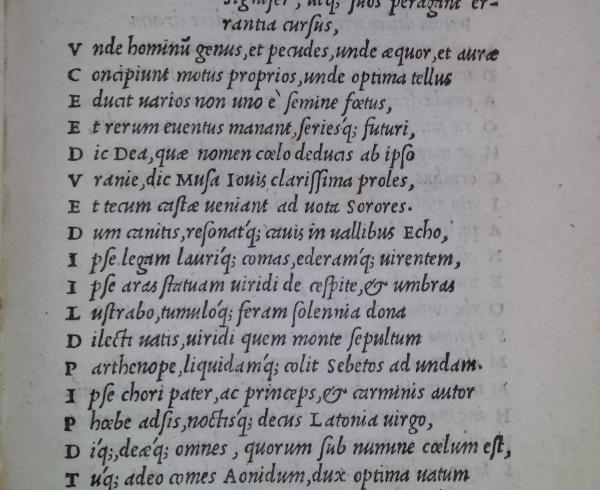
Astrological poem in hexameters that concerns the constellations and their influences on worldly phenomena.

Astrological poem in hexameters that concerns the constellations and their influences on worldly phenomena.
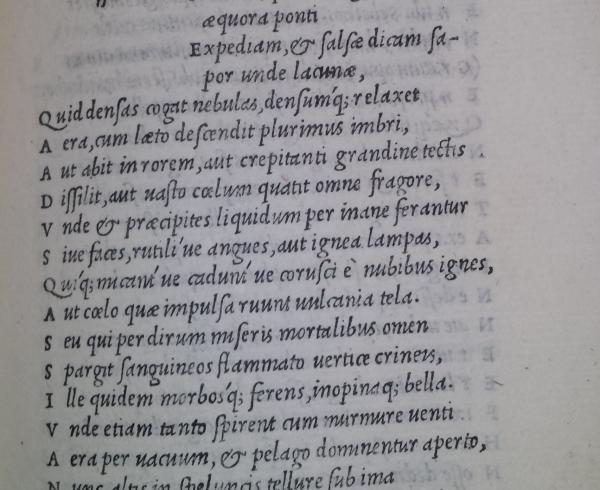
Astrological poem in hexameters concerning the impact of celestial bodies on atmospheric phenomena and on the sublunary sphere.
The poem develops natural and astrological issues and ethical and pedagogical reasons.
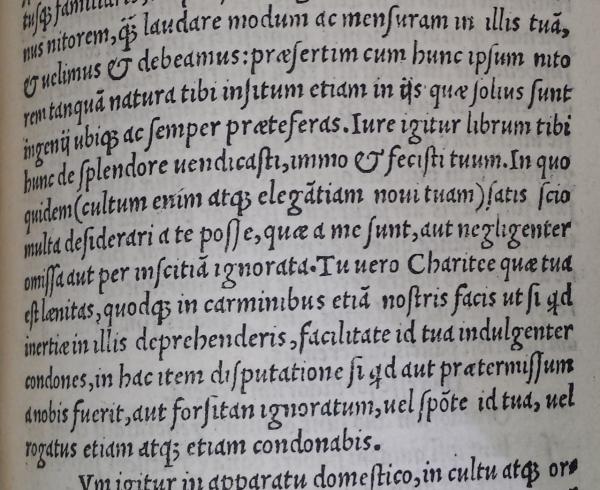
Ethical treatise on the virtue of splendor, written after the printing of the De principe, De obedientia and of the De fortitudine.

Astrological treatise in fourteen books, drawn up at the end of the Century in the light of Ptolemaic astrology and in controversy with the text of the Pico della Mirandola, Disputationes adversus astrologiam divinatricem.

Philosophical treatise in five books dealing with the prudence as a civil virtue. In the text, the moral doctrine is part of a natural setting and man's behavior is seen as a reflection of physical characteristics.
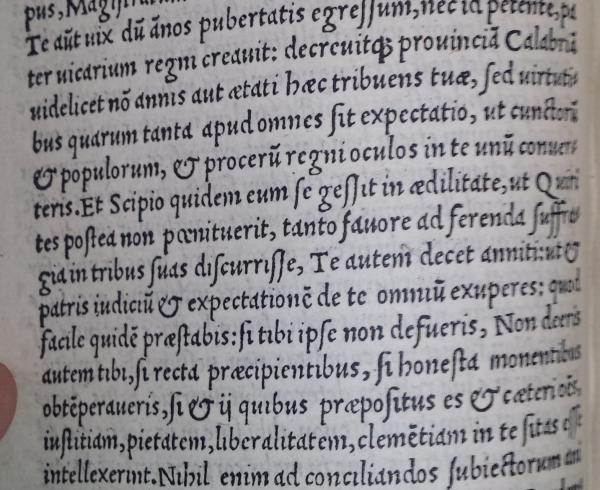
Ethical treatise written around 1468 for Alfonso of Calabria, the future sovereign of the Kingdom of Naples.

Ethical treatise in five books, written after the Civil Neapolitan War (1459-1465), which had raised the issue of the relationship between the political body and royal authority.

Ethical treatise on the virtue of grander, written after the printing of the De principe, De obedientia and of the De fortitudine.
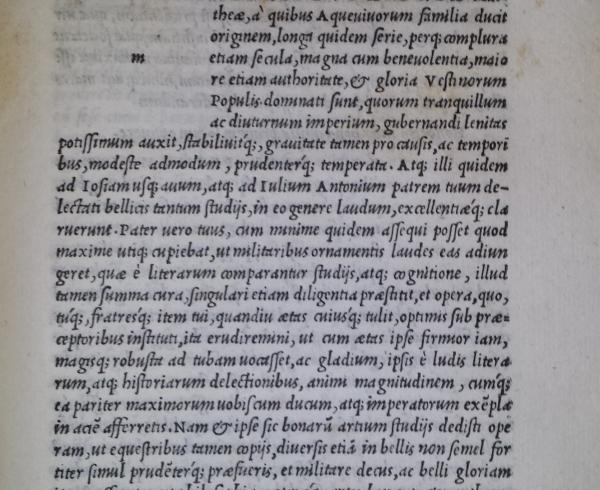
Treatise which shares the aristocratic perspective of the texts on civil virtues, written a few years before De magnanimitate.
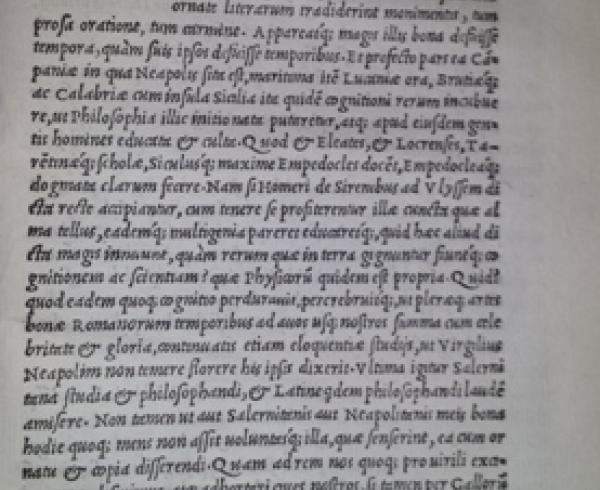
Fragment of an astrological text that relates to the moon and its influence.
The text is part of a trilogy of natural and astrological writings of Pontano, made in prose, which belong to the last phase of his theoretical elaboration.
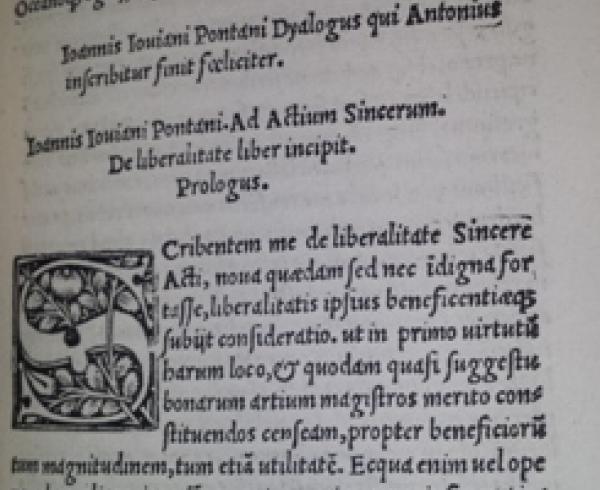
Ethical treatise on the virtue of liberality, written after the printing of the De principe, De obedientia and of the De fortitudine.
Ethical treatise in three books centered on the relationship between virtue and fortune, published by Pietro Summonte in Naples, in 1512, for the types of Sigismund Mayr.
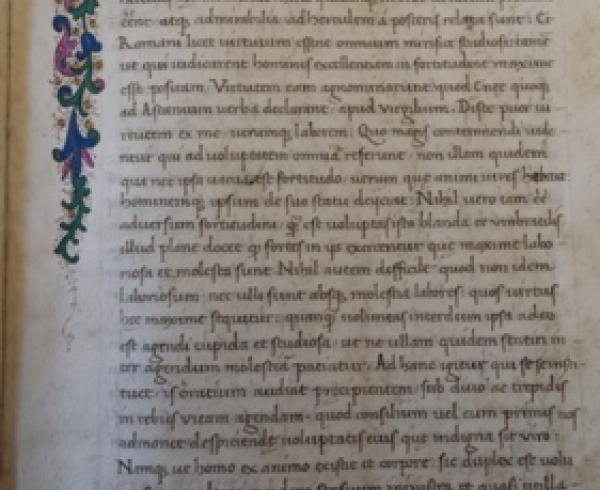
Treatise in two books written around 1480-1890. The text belongs to the first phase of the ethical-political production, which also includes the De principe and the De obedientia.
Ethical treatise on the behavior of the courtier, written after the printing of the De principe, De obedientia and of the De fortitudine.
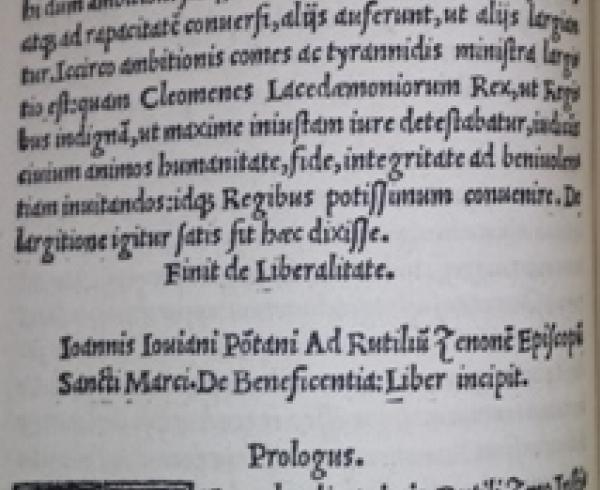
Ethical treatise on the virtue of benefaction, drawn up in the years 1493-1494 and printed in 1498.
Latin edition and commentary in two books of Centiloquium pseudo-Ptolemaic, translated by Pontano from original in greek.